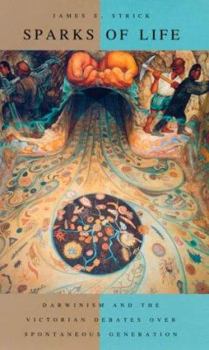Sparks of Life: Darwinism and the Victorian Debates Over Spontaneous Generation
Select Format
Select Condition 
Book Overview
How, asks James E. Strick, could spontaneous generation--the idea that living things can suddenly arise from nonliving materials--come to take root for a time (even a brief one) in so thoroughly unsuitable a field as British natural theology? No less an authority than Aristotle claimed that cases of spontaneous generation were to be observed in nature, and the idea held sway for centuries. Beginning around the time of the Scientific Revolution, however,...
Format:Hardcover
Language:English
ISBN:067400292X
ISBN13:9780674002920
Release Date:December 2000
Publisher:Harvard University Press
Length:283 Pages
Weight:1.35 lbs.
Dimensions:1.1" x 6.5" x 9.6"
Customer Reviews
0 rating





